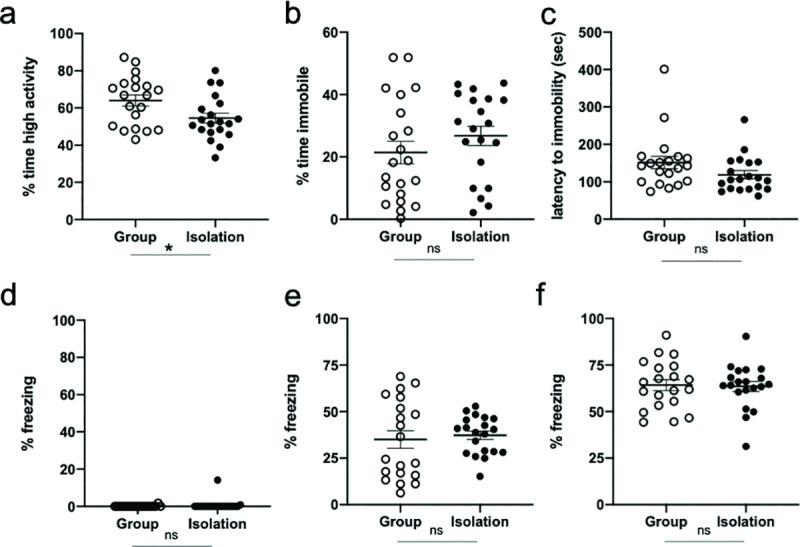Fig 2. Late-life social isolation does not enhance depressive-like behaviour or context fear behaviour.

(a) Socially isolated mice (black, closed circles) spend less time performing high-activity struggling behaviour in the forced swim task relative to group-housed controls (white, open circles), indicating a mild learned-helplessness phenotype. (b) Isolated and group-housed mice spend a similar percentage of time immobile, and (c) similar latency to the first bout of immobility in the forced swim task. (d) Isolated and group-housed controls exhibit comparable freezing behaviour pre-foot shocks, and (e) post-foot shocks during context fear conditioning. (f) Freezing during the context fear test session was equivalent between isolated and group-housed mice, indicating no enhanced fear reactivity or context fear memory following late-life social isolation. Error bars represent the standard error of the mean (SEM). * p<0.05, ns p > 0.05.
